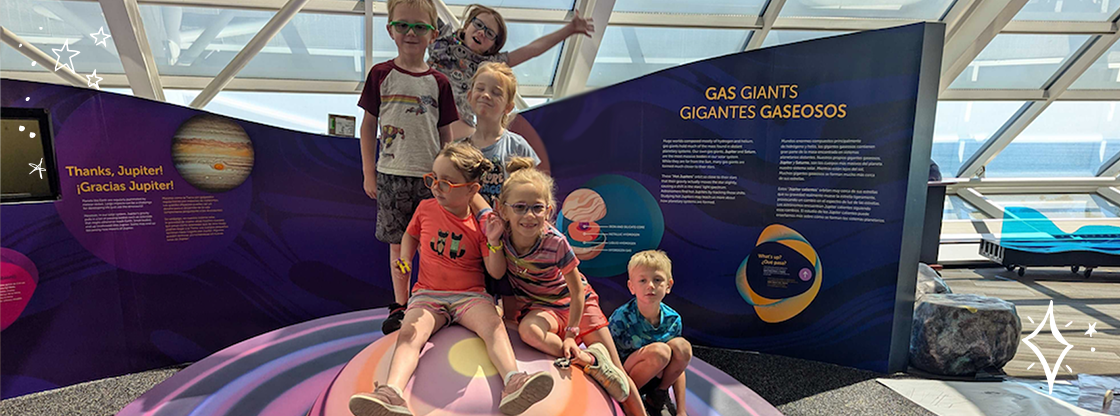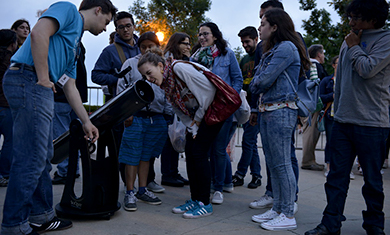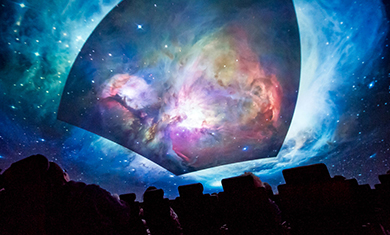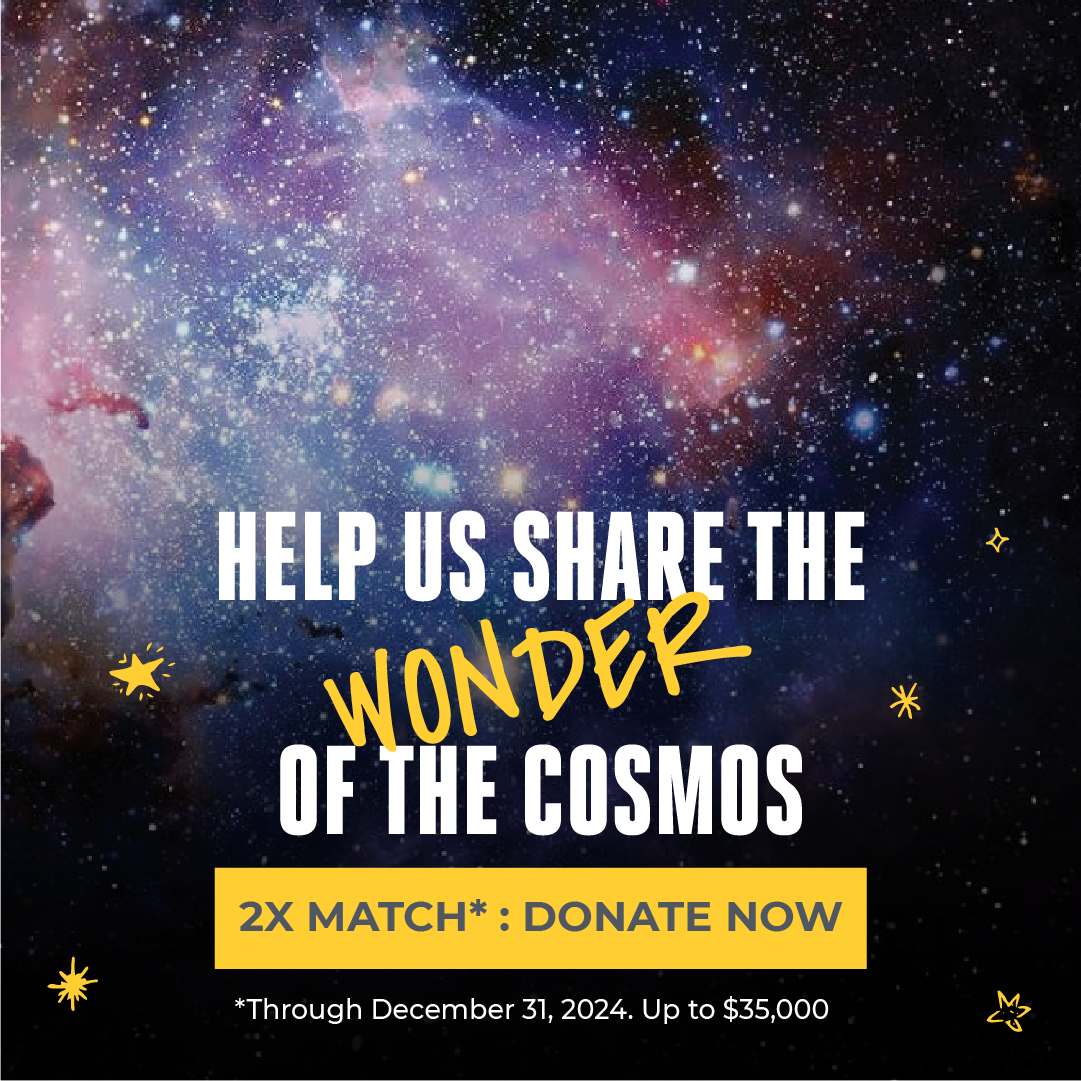Other Worlds

Obsessed with planets? A diverse range of worlds can be found in our solar system (and across the galaxy).
If you’ve ever looked up at our shared night sky and wondered about the worlds that lie beyond our own, you’re not alone. Planets can be hot or cold, rocky or gassy, enormous or teeny-tiny. Exoplanets—planets that orbit other stars—are even more diverse than the worlds of our solar system. With recent advancements in technology over the last several decades, scientists have been able to explore further than ever before, so we learn more about these planets each and every day.
In the brand new exhibit Other Worlds at the Adler Planetarium, you’ll experience how diverse these planets truly are. More importantly, you’ll learn how studying planets in our solar system and discovering exoplanets both help us better understand our Earth and how other worlds came to be.
Exhibition Highlights
- Learn about diverse worlds—gas giants, ice giants, super Earths, and mini-Neptunes—across the galaxy.
- Climb all over a gas giant ringed exoplanet!
- Touch the second-largest fragment of the Canyon Diablo meteorite that created Barringer Crater (aka Meteor Crater) in Arizona, and other meteorite fragments from the Moon and Mars.
- Walk on other worlds through our immersive experience that transports you to Mars and hypothetical exoplanet environments.
- Take in the refurbished rotating Earth globe that features historic 1980s era dioramas about our planetary neighbors.
- Hunt for distant planetary systems using data from the Transiting Exoplanet Survey Satellite (TESS).
- Traverse various planetary surfaces like rock, sand, ice, water, and lava.
- Check out our Mars rover and Ingenuity helicopter models, and the Aquarius Project sled that have all helped us explore other worlds near and far.
- Snap a selfie with our iconic hanging solar system planet models.
- Create your own planetary system at the “Stellar Playground” interactive touch table.
- Spin the tactile continuum globe to feel the different surface types of super Earths and mini-Neptunes.
- Explore the ethics of space exploration and voyages to planets, and share your opinions by casting your vote.
- Find out more about the range of missions actively exploring planets.
Deeper Exploration
Featured Citizen Science Project
Look at lightcurve data from the Transiting Exoplanet Survey Satellite (TESS) to detect planet transits around distant stars to assist scientists in their research efforts in the Adler Zooniverse Planet Hunters TESS research project.
Wow! Signal Space Comedy Show
Watch your favorite musical space comedy show’s take on exoplanets! In this episode, a travel company uses artificial intelligence to create terrible, questionably legal planets just for you; an alien asks a human for help decoding a mysterious golden circle; investigative reporter Stacey Quasar gets to the bottom of exoplanets; a goose searches for the perfect planetary surface to walk on; a rogue planet longs for the open sky; and we visit a bright green planet covered in tiny trees.
Thanks To Our Sponsors
The Adler Planetarium is grateful to Crown Family Philanthropies for supporting Other Worlds.








